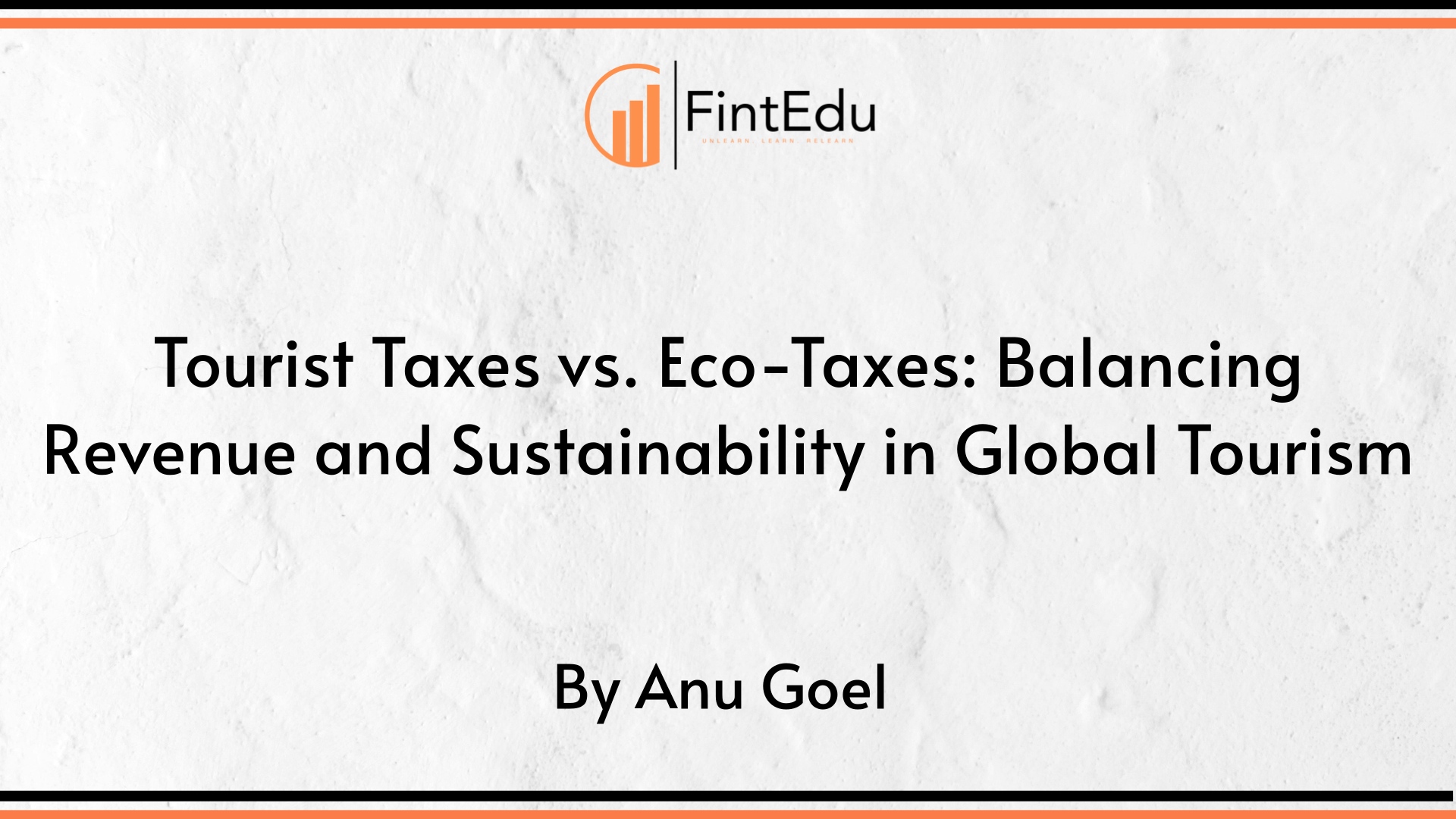LISTEN TO THIS ARTICLE
As tourism grows, governments and destinations are increasingly introducing taxes on travelers to manage the economic, environmental and infrastructural impacts of mass tourism. Two common types of levies in this space are the tourist tax and the eco-tax. While they may seem similar, they serve distinct purposes.
Here, we break down the differences and provide examples of both taxes in practice.
What is a Tourist Tax?
A tourist tax is a fee imposed on travelers, often collected through accommodations or visitor entry fees, to raise funds from tourism activity. The revenue from tourist taxes is typically used to support local infrastructure, maintain cultural heritage sites, and enhance tourism-related services. The primary aim is economic: managing the costs associated with tourism and redistributing the benefits more equitably among residents and the local government.
Examples of Tourist Taxes
- Venice, Italy: Venice charges both overnight tourists and day visitors a fee to help maintain the city’s infrastructure, particularly in response to overcrowding from cruise ships. The tax helps fund the preservation of the city’s historic landmarks and canals, which are heavily impacted by the influx of visitors.
- Paris, France: Paris imposes a tourist tax on visitors staying in hotels, hostels, and other accommodations. This tax helps fund local infrastructure improvements, cultural initiatives, and the promotion of Paris as a leading travel destination.
- Thailand: Starting in 2024, Thailand plans to introduce a tourist entry fee of 300 baht ($9). This tax will support tourism-related services, insurance coverage for tourists, and infrastructure maintenance, although its focus is more on tourism economy sustainability than environmental concerns.
What is an Eco-Tax?
An eco-tax (or environmental tax) is a levy aimed specifically at offsetting the negative environmental impacts of tourism. This tax is usually imposed in areas with fragile ecosystems or heavy tourist foot traffic that threatens environmental sustainability. The funds generated from eco-taxes are typically invested in environmental conservation, wildlife protection, and sustainability projects that help preserve natural resources for future generations.
Examples of Eco-Taxes
- Balearic Islands, Spain: A well-known eco-tax, called the sustainable tourism tax, is charged on tourists staying in accommodations across the islands. This tax directly supports environmental projects, such as water conservation, reforestation, and the protection of historical sites, all aimed at mitigating the environmental footprint of tourism.
- New Zealand: New Zealand introduced a visitor levy of NZD $35 in 2019, specifically aimed at funding environmental conservation and infrastructure improvements in natural parks and rural areas, ensuring the long-term sustainability of its famous outdoor attractions.
- Costa Rica: In Costa Rica, tourists visiting national parks are charged an eco-tax in the form of entry fees. The money is used to maintain these protected areas, promote biodiversity, and ensure the sustainability of the country’s rich natural ecosystems, which are a primary draw for tourists.
Key Differences Between Tourist Tax and Eco-Tax
- Tourist taxes focus primarily on generating revenue to improve tourism services, infrastructure, and economic growth, while eco-taxes are specifically designed to fund environmental protection and sustainability efforts.
- Tourist taxes are generally applied to accommodations or entry points, whereas eco-taxes often target specific activities or locations that directly impact the environment, such as national parks or nature reserves.
- Tourist tax revenues may go toward city maintenance, cultural heritage preservation, or tourism promotion, while eco-tax revenues are earmarked for environmental conservation, restoration, and sustainability projects.
Does It Make Sense for Tourism-Dependent Countries to Levy These Taxes?
For countries heavily reliant on tourism, introducing a tourist or eco-tax can be a double-edged sword. On one hand, these taxes provide much-needed funds for infrastructure development, environmental conservation, and managing the costs of overtourism. On the other hand, there is a risk that higher taxes could deter budget-conscious travelers or negatively impact tourism demand.
That said, many countries have successfully implemented these taxes without experiencing significant declines in tourism. By carefully designing tax policies that balance the need for revenue with the preservation of their attractions, destinations can ensure sustainable tourism growth without alienating travelers. For tourism-dependent countries, the key is transparency—showing visitors how their contributions are helping protect the destination can build trust and encourage repeat visits.
The Future of Tourist and Eco-Taxes
Tourist taxes and eco-taxes are becoming increasingly necessary as destinations around the world grapple with the challenges of mass tourism. Both types of levies serve valuable roles—tourist taxes help generate revenue for infrastructure and services, while eco-taxes protect the environment from the harmful effects of tourism. For destinations to remain attractive and sustainable in the long run, a well-implemented balance of both taxes can be crucial.
As travel continues to grow, tourists may come to expect these taxes as a normal part of their travel costs, particularly when they see the tangible benefits, such as well-maintained attractions, preserved natural sites, and enhanced travel experiences. Ultimately, the goal is to ensure that tourism remains a force for good, benefiting both the economy and the environment in equal measure.
Disclaimer: Content posted is for informational and knowledge sharing purposes only, and is not intended to be a substitute for professional advice related to tax, finance or accounting. The view/interpretation of the publisher is based on the available Law, guidelines and information. Each reader should take due professional care before you act after reading the contents of that article/post. No warranty whatsoever is made that any of the articles are accurate and is not intended to provide, and should not be relied on for tax or accounting advice.



